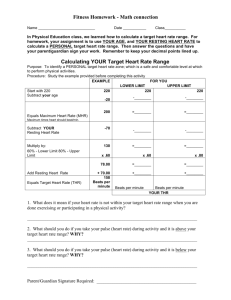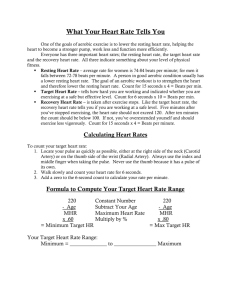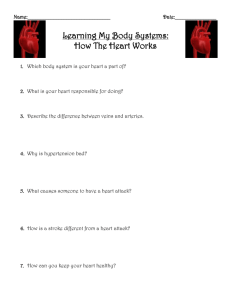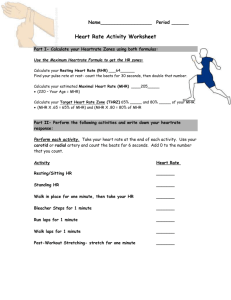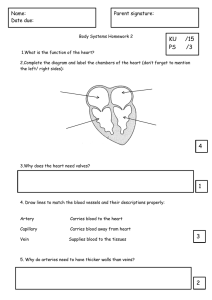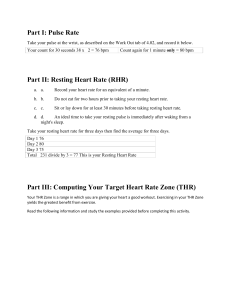Target Heart Rate
advertisement
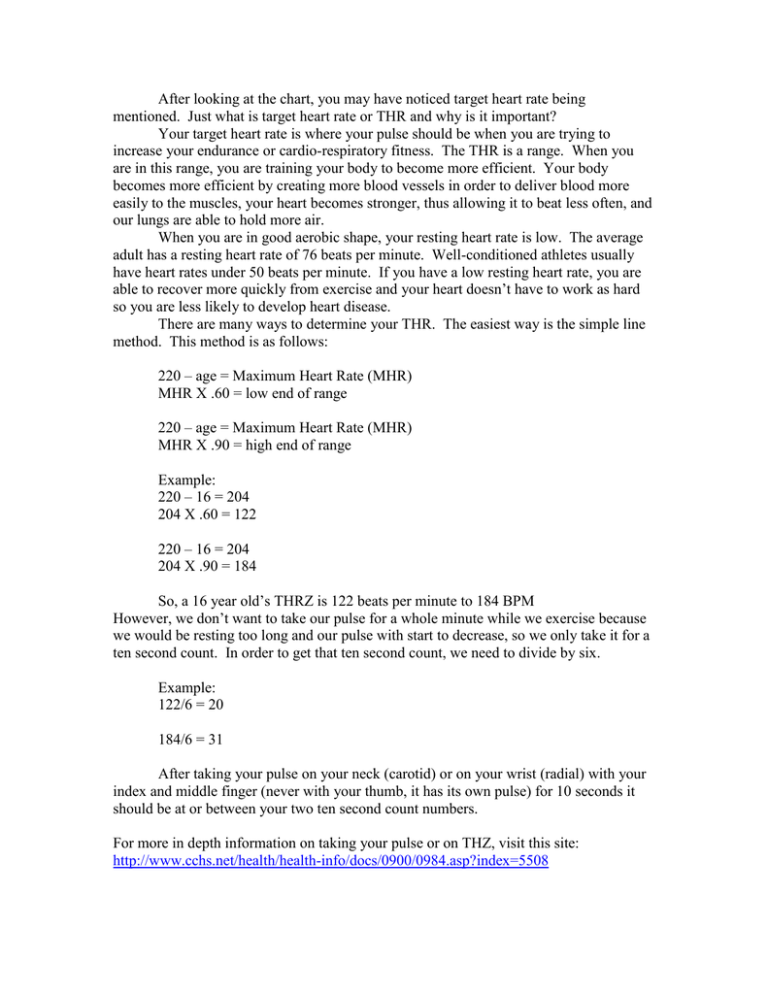
After looking at the chart, you may have noticed target heart rate being mentioned. Just what is target heart rate or THR and why is it important? Your target heart rate is where your pulse should be when you are trying to increase your endurance or cardio-respiratory fitness. The THR is a range. When you are in this range, you are training your body to become more efficient. Your body becomes more efficient by creating more blood vessels in order to deliver blood more easily to the muscles, your heart becomes stronger, thus allowing it to beat less often, and our lungs are able to hold more air. When you are in good aerobic shape, your resting heart rate is low. The average adult has a resting heart rate of 76 beats per minute. Well-conditioned athletes usually have heart rates under 50 beats per minute. If you have a low resting heart rate, you are able to recover more quickly from exercise and your heart doesn’t have to work as hard so you are less likely to develop heart disease. There are many ways to determine your THR. The easiest way is the simple line method. This method is as follows: 220 – age = Maximum Heart Rate (MHR) MHR X .60 = low end of range 220 – age = Maximum Heart Rate (MHR) MHR X .90 = high end of range Example: 220 – 16 = 204 204 X .60 = 122 220 – 16 = 204 204 X .90 = 184 So, a 16 year old’s THRZ is 122 beats per minute to 184 BPM However, we don’t want to take our pulse for a whole minute while we exercise because we would be resting too long and our pulse with start to decrease, so we only take it for a ten second count. In order to get that ten second count, we need to divide by six. Example: 122/6 = 20 184/6 = 31 After taking your pulse on your neck (carotid) or on your wrist (radial) with your index and middle finger (never with your thumb, it has its own pulse) for 10 seconds it should be at or between your two ten second count numbers. For more in depth information on taking your pulse or on THZ, visit this site: http://www.cchs.net/health/health-info/docs/0900/0984.asp?index=5508
